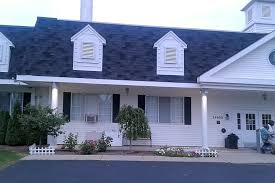The evolution of technology has significantly impacted assisted living Farmington Hills mi living. Smart homes equipped with advanced automation systems have revolutionized the way we interact with our living spaces. From smart thermostats that regulate temperatures to security systems that ensure safety, technology has augmented the functionality and comfort of residential environments, making daily life more efficient and enjoyable.
The ongoing focus on sustainability and environmental consciousness has also influenced the design and construction of residential spaces. Architects and builders are increasingly incorporating eco-friendly materials, energy-efficient systems, and sustainable practices to minimize the environmental impact of residential developments. Concepts like passive design, green spaces, and renewable energy sources are becoming integral parts of modern residential projects.
Moreover, the events of recent times, such as the global pandemic, have reshaped our perception of residential spaces. Homes have transformed into multifunctional hubs accommodating work, education, entertainment, and relaxation. The need for adaptable spaces that cater to evolving lifestyles has gained prominence, leading to a reevaluation of interior layouts and spatial design.
In essence, residential living transcends the physical structures; it embodies the essence of comfort, security, and emotional well-being. It is a testament to the human need for belonging and personal expression. The evolution of residential spaces continues to reflect our ever-changing lifestyles, aspirations, and values, shaping the way we live and interact with our surroundings.
As we move forward, the essence of residential living remains a vital cornerstone of our existence—a place where stories are created, memories are cherished, and the very essence of what it means to be “home” is deeply ingrained in our hearts and minds.
